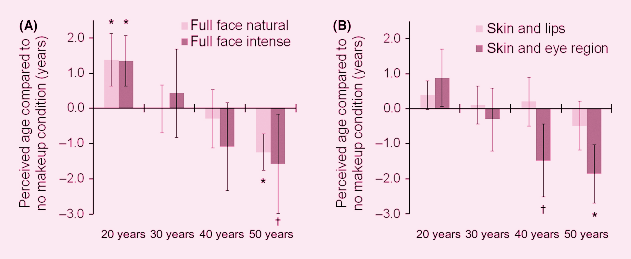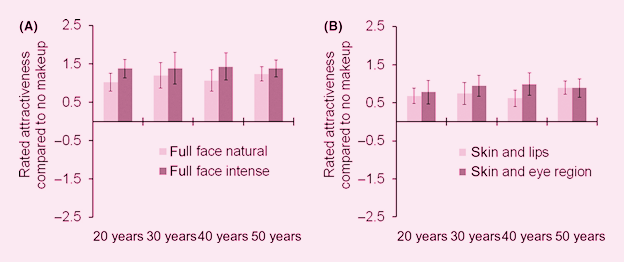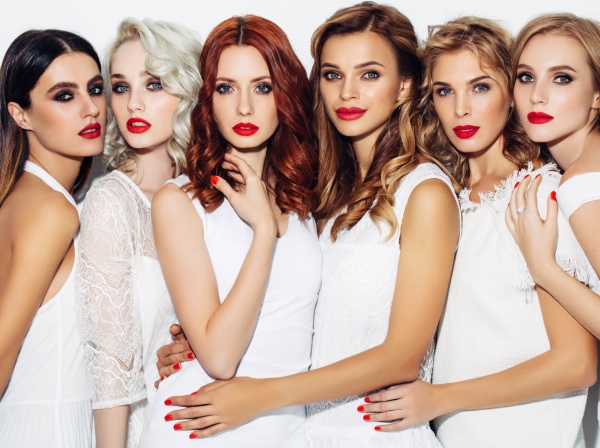Makeup is still the best weapon in the fight against ageing ‒ at least temporarily ‒ according to a new study published in the British Journal of Psychology.
The ‘Differential effects of makeup on perceived age’ study, by Richard Russell, an associate professor of psychology at Gettysburg College, found that 40 and 50-year-old women appeared “significantly younger” when wearing makeup.
The study, conducted in collaboration with researchers from Chanel Fragrance & Beauty Research & Innovation, featured 32 women in four age bands (approximately 20, 30, 40 and 50 years old).
Each woman’s face was first photographed with no makeup. The women were then made up by a professional makeup artist and photographed again with four different makeup looks:
Skin and Lips: Concealer, foundation, blush, powder, lipstick and lip liner,
Skin and Eye Region: Concealer, foundation, blush, powder, eye liner, eye shadow, mascara, and eyebrow pencil
Full Face Natural : Concealer, foundation, blush, powder, lipstick, lip liner, eye liner, eye shadow, mascara and eyebrow pencil
Full Face Intense: Concealer, foundation, blush, powder, lipstick, lip liner, eye liner, eye shadow, mascara and eyebrow pencil
Each ‘face’ (no makeup and the four makeup looks) was photographed eight times and then morphed into an ‘average’ to maintain the privacy of the women. However, it must be noted that the morphing results in all the faces – including those in the no makeup condition – having smooth, even skin, thereby obscuring the difference in skin evenness between the makeup and no makeup conditions.
Participants were then asked to estimate the age of each face by clicking on a visual scale ranging from 10 to 70 and rate their attractiveness on a scale ranging from 0 to 100.

According to Russell, the 40 and 50 year old women were perceived as younger when they had makeup on as makeup accentuates three youth-related visual features:
Skin homogeneity – Skin evenness is positively associated with attractiveness and perceived health, but negatively associated with age.
Facial contrast – The colour and luminance contrast between the facial features and the surrounding skin is positively associated with attractiveness. In addition, aspects of facial contrast are typically greater in female than male faces (and therefore considered more ‘feminine’) and decline with age.
Facial Feature Size – The size of facial features affects age perceptions. For example large eyes and lips tend to be associated with youth while a large nose tends to be associated with ageing.
Russell said he conducted the study as although many researchers have studied makeup’s effect on perceived attractiveness, none had measured its effect on age perception.
He said the finding that wearing makeup affects age perception is an important one as “age is a major dimension of human social interaction and person perception.

“How old we look influences how others treat us in a wide variety of contexts… and because age discrimination is pervasive in employment contexts, particularly for women, the ability to manipulate perceived age through makeup may provide critical professional benefits.”
Although Russell was not surprised to discover that 40 and 50-year-old women looked younger with makeup than without it, he was surprised to find that the 30-year-old women wearing makeup were perceived to be their right age while the 20-year-olds wearing makeup were perceived to be older that their actual age.
The researchers therefore replicated the study with 189 participants and found the same pattern of results.
Not surprisingly, in both studies the women were rated more attractive with makeup than without.

